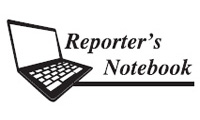The storm of opinion stirring up on Facebook and Twitter signals that polling day is near. However, it’s questionable whether a traveler arriving in Seoul today would recognize that Koreans are preparing to elect a new president when the streets, buildings and houses provide almost no hint.
This is a dramatically different picture than that in the United States just weeks earlier when the names of Obama and Romney were ubiquitous through bumper stickers, flags and door signs. Here, it would require a Herculean search to spot even a cardboard advertisement.
The discontinuity between the heated political discussions on the Internet and the subdued atmosphere off of it is a creation of Korea’s quirky voting law that continues to reshape the election in its own unique way.
According to the law, no person outside of registered campaign officials is allowed to display the names and photos of political parties and candidates with the purpose of influencing other voters within 180 days of an election. There are also tight restrictions over the promotional props and installments used by parties.
“I don’t exactly remember when Provision No. 90 was written and enforced and what was the logic behind its introduction,’’ said an official from the National Election Commission’s (NEC) election management committee.
“It’s not like we are preventing people from talking about politics and candidates in public, so I think it would be harsh to call the regulations as undemocratic. Still, I have to admit that the rules might have a squeezing effect on expressing opinions.’’
The tricky part is that voters are allowed to use the photos and names of Park Geun-hye and Moon Jae-in on banner screens when the message is just about encouraging people to vote. Make any suggestions about who they should or not be voting for, however, and the signs become illegal.
“The law protects campaigns for voter participation, but not negative campaigning against a certain candidate,’’ said the NEC official.
Regulations here are complicated enough that average people and even politicians will frequently commit trivial violations here and there without their knowledge, he admitted, saying that the job of managing the election is sometime less about policing than letting the game flow.
Korea is also home to one of the toughest regulations on election campaigning: Candidates are issued strict timetables to be followed when promoting themselves and are given limited choices regarding how they may do so, with any activities beyond these boundaries deemed as unlawful.
While many nations have voting systems in which they count ballots at polling stations, Korea is among the group of countries that totalize votes cast from multiple locations at a central point. Municipalities are also restricted from organizing public events within 60 days of the polls.
Someone who would undoubtedly be checking the Election Law book now is Ahn Cheol-soo. The computer software mogul and influential public speaker who withdrew from the race last week after his talks to merge candidacies with fellow opposition challenger Moon Jae-in of the Democratic United Party (DUP) fell through.
Despite his exit from the presidential race, the presence of Ahn continues to be a shadow over the elections: Both Moon and conservative candidate Park Geun-hye of the ruling Saenuri Party knows that the outcome of the Dec. 19 vote will depend on how they manage to absorb Ahn’s disgruntled supporters.
It was Park who had been favored in a three-way race and Moon is desperate in his pitch for Ahn, now on a mini-hiatus. However, when Ahn does reappear in front of the cameras, Moon might find that there is only so much his former rival can do to boost his candidacy.
It’s uncertain whether Ahn will give Moon is full-fledged support as it might be better for his interests to weather the presidential election unscathed and concentrate on launching his own political party around the by-elections in April. And even if Ahn does decide to support Moon whole heartedly, he won’t be doing much more than showing up at DUP-registered rallies.
Under the current law, Ahn is forbidden from organizing lectures and other public speaking events in support of Moon. His campaign office in Gongpyeong-dong, Seoul, will be banned from being used for Moon’s campaigning activities. He will be prevented from even holding up a picket sign.
One of the few things Ahn can do is to send mobile-phone text messages in support of Moon, although the law permits only 20 people at a time.
Interestingly, there will be no limits on the number of messages he can send through Kakao Talk, a wireless instant messaging service popular with smartphone users here. The NEC considers Kakao Talk as a form of e-mail, not mobile texts <The Korea Times/Kim Tong-hyung>



